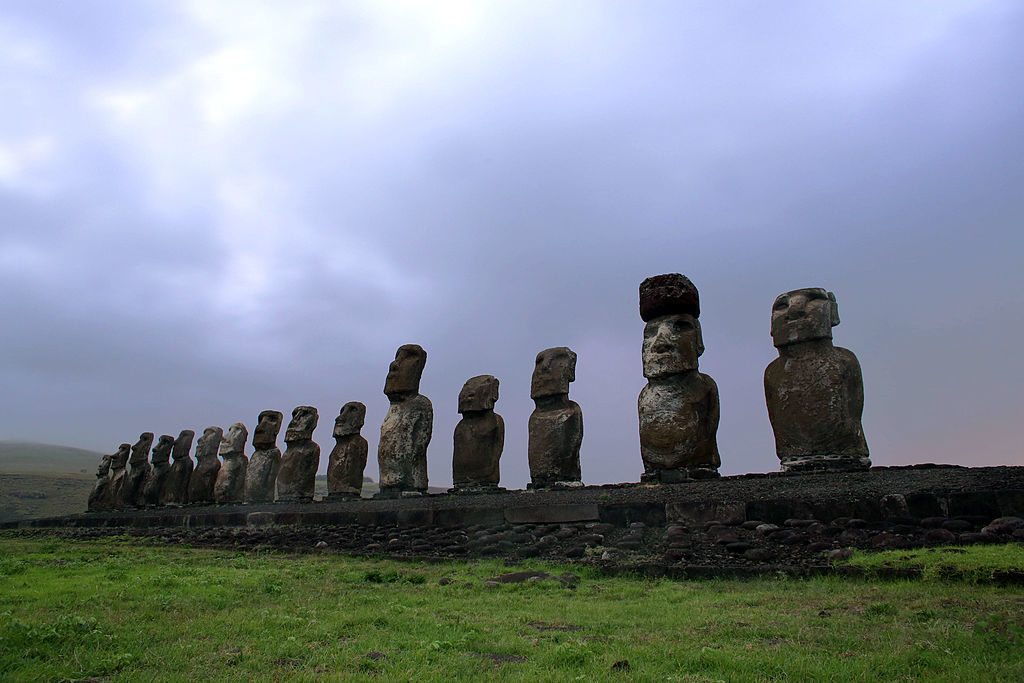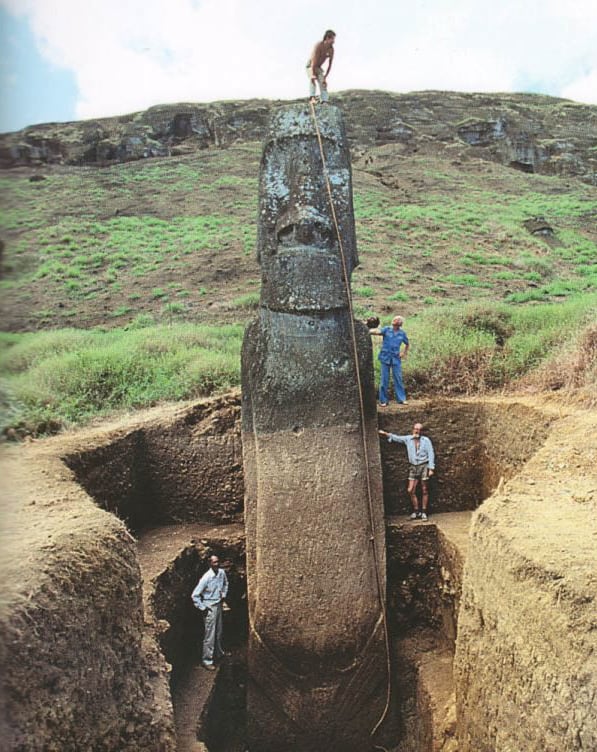 |
View of Moais Ahu Tongariki. Photo Gregory Boissy/AFP/Getty Images.
|
A campaign to return one of the famous Easter Island statues to its native Chile has been launched by a group of Chilean filmmakers, who believe that it should be returned by the UK.
Hoa Haka Nana’ia or Hidden or Stolen Friend is currently on view at the British Museum as one of its main attractions. The moai, believed by the Rapa Nui culture to be inhabited by spirits or mana that protected local tribes, was made in the 13th century. It stands at around eight feet tall and weighs around four tons.
The makers of a new documentary on the statues, called Te Kuhane o the Tupuna: El espíritu de los ancestros, claim that returning the moai to Easter Island could go some way to improve things there.
“One way to recover the mana to restore wellbeing to the island is to bring the spirit of the Moai Hoa Kaka Nana’ia back to its native land,” the new film says, according to AFP.
 |
Photo: courtesy the Easter Island Statue Project. |
The producer of the film, Paula Rossetti, told AFP that she has a petition of over 500 signatures asking the Chilean government to demand the return of the statue and other valuable artifacts to its shores, but admits: “It will be difficult to get them back.”
Countries from around the world are asking Britain to return items found, collected, or looted by British explorers that now sit in the some of the countries most famous institutions. The most famous example is that of the infamous Elgin marbles, which the Greek government has been campaigning to have returned for many years to no avail.
Related: Greece Puts International Pressure on British Museum to Return Parthenon Sculptures
Hoa Haka Nana’ia is one of an estimated 4,000 artifacts taken from Easter Island that are currently in collections around the world.
There are an estimated 887 of the largest moai on Easter Island, most of which were carved from volcanic rock between the years 1100 and 1680.
No comments:
Post a Comment